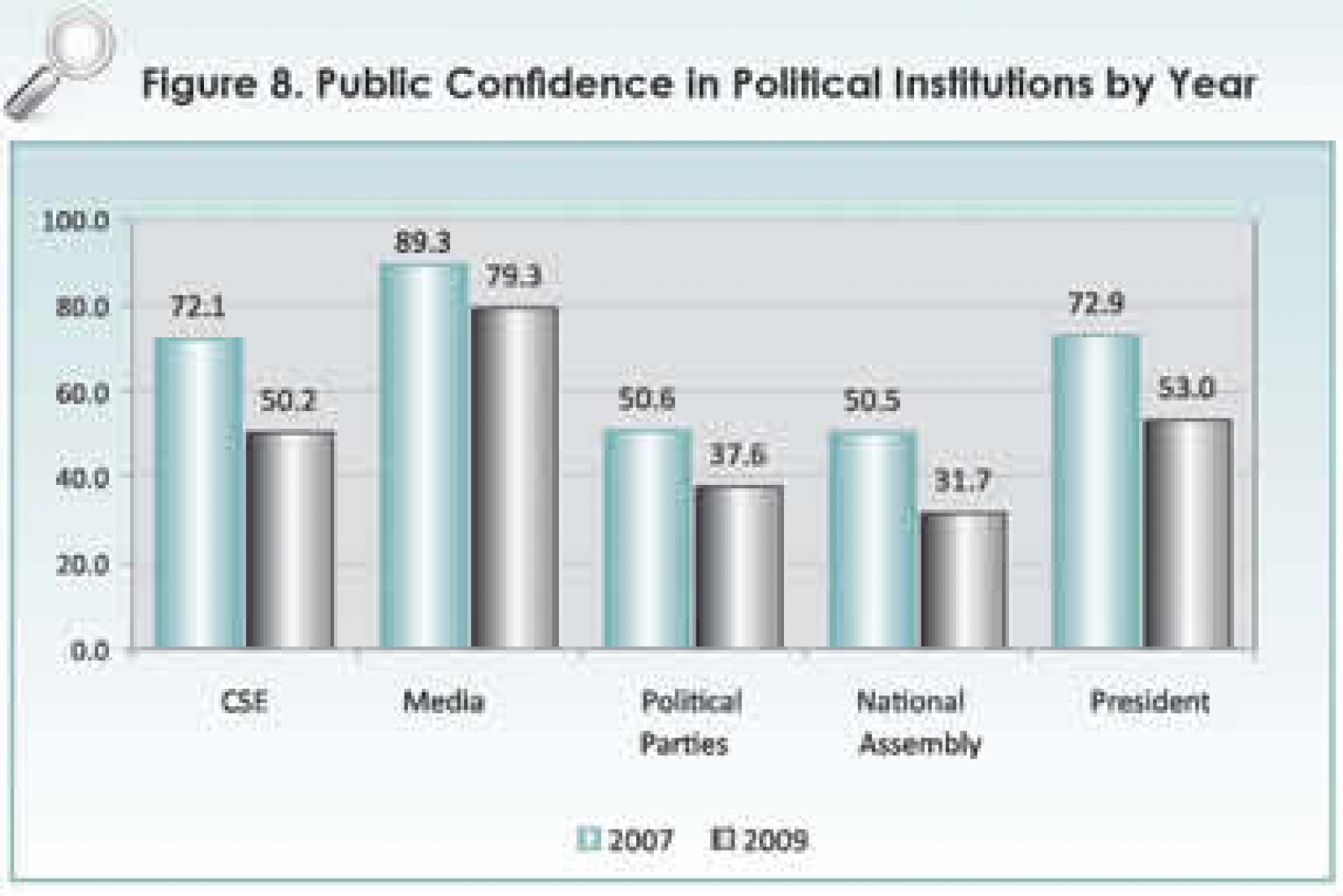
SHARE
The confidence of Nicaraguan citizens in their public institutions has declined significantly over the past two years, according to a new survey of Nicaraguan public opinion.
The survey is the third in a series of post-election surveys conducted by NDI that examine Nicaraguan views on the state of democracy in their country. The first was in 2005 and the second in 2007. Carried out in collaboration with the Institute for Development and Democracy (Instituto para el Desarollo y la Democracia, IPADE), the survey draws on information from a random sample of 1,200 Nicaraguans surveyed March 17 to March 26, 2009.
The survey found that citizen confidence in key representative institutions, particularly the Supreme Electoral Council (Consejo Supremo Electoral, CSE), the presidency, the National Assembly and political parties, dropped an average of almost 20 points from 2007 to 2009. The survey’s lead analyst, NDI Senior Advisor Dr. Neil Nevitte of the University of Toronto, said the drop was unusual because in most countries citizen support for their institutions is typically quite stable.
Nicaraguan analysts attribute the crisis of public confidence to the highly questioned 2008 municipal election process and to the negative influence of the nearly 10-year “pacto” between governing Sandinista National Liberation Front (Frente Sandinista de Liberación Nacional, FSLN) and the Liberal Constitutionalist Party (Partido Liberal Constitucionalista, PLC), which has politicized electoral and judicial authorities.
The survey also found that a substantial portion of eligible citizens are prevented from voting because they face institutional barriers, such as the lack of national identification cards. Four out of 10 citizens reported that they did not vote for that reason. The young are disproportionately disenfranchised as a result of this problem; 54 percent of the young citizens who did not vote reported facing this problem.
The survey did find that Nicaraguan support for a “democratic political system” has gradually increased from 34 to 41 percent since 2005. However, citizens holding democratic values, particularly women, are becoming less engaged in politics.
IPADE and NDI presented key findings from the democracy survey to different sectors, including academics, civil society leaders, political party leaders, women and youth representatives, and the media. In discussions about the results, Nicaraguans were most struck by this apparent paradox between increasing support for democratic principles and decreasing citizen participation.
While “Pacto” representatives are discussing constitutional reforms to establish a mixed presidential-parliamentary system and allow consecutive presidential reelection, many Nicaraguan civil society and political party leaders have begun to debate the need for other electoral and political reforms, including depoliticizing the electoral system, in order to restore public confidence. Regional elections are scheduled for 2010 and presidential and legislative elections in 2011.
In light of these new survey results, it is clear that overcoming the loss of public confidence in institutions and re-engaging citizens are equally important challenges to the future integrity of the electoral system in Nicaragua.
Pictured above: A chart from the report shows how public confidence in political institutions has fallen from 2007 to 2009.
–
Published on August 13, 2009


